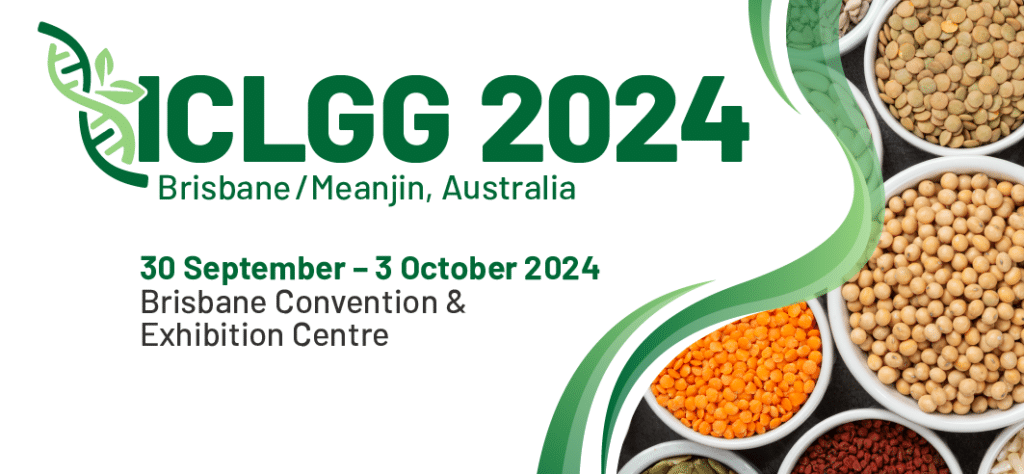Invited speakers
Plenary speakers
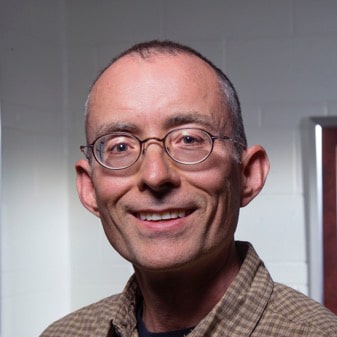
Dr Steven Cannon
Session: Evolution and diversity
Steven Cannon serves as a Research Geneticist with the USDA Agricultural Research Service. The ARS research group that he leads maintains plant genetic databases for soybean (soybase.org) and other legume species (legumeinfo.org). He has been involved in many genome sequencing and annotation projects, from the first assemblies of Medicago truncatula and soybean, through common bean, peanut and its wild relatives, and other diverse species such as redbud (Cercis), partridge pea (Chamaecrista), and potato bean (Apios). His research interests include translation of information about the genetic basis of traits between species, and tracing the origins of the legume family and biological innovation within the family such as symbiotic nitrogen fixation.
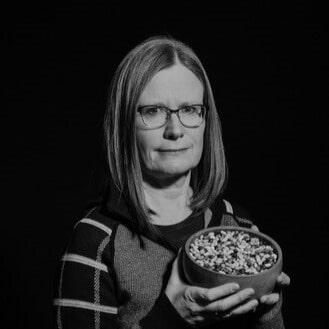
Prof Kirstin Bett
Session: Big Picture – Legumes for the 21st Century
Kirstin Bett is Professor in the Department of Plant Sciences, University of Saskatchewan, Canada. She teaches courses at the graduate and undergraduate level in plant breeding and plant genetics. She is responsible for a common bean breeding program that has released several varieties targeted at the short season growing regions of western Canada. She has also established a complementary genetics program that uses classical and molecular techniques to better understand the traits that lead to the development of superior pulse crop cultivars. This has included work in seed quality, disease resistance and flowering time and has extended to the use of wild species as a source of useful variability. She has been involved in the development of genomic resources for lentil and common bean including leading the effort to sequence genomes of lentil and its wild relatives. She is currently wrapping up a Genome Canada project focused on the genetics of seed quality traits in lentil – a natural progression from her previous Genome Canada grant on domestication and adaptation in lentil. Her third Genome Canada project has just started and focuses on the genetics underlying the value of lentil to rotations with wheat in western Canada.

Prof Stig Andersen
Session: Structural genomics
Professor Stig Uggerhøj Andersen received his PhD degree in 2004 from Aarhus University, Denmark and then worked in a local biotech start-up company before taking up a two-year postdoctoral position focusing on stem cell biology and cell cycle regulation in Jan U. Lohmann’s group in Detlef Weigel’s department at the Max Planck Institute in Tübingen, Germany. He then returned to Aarhus University, where his group focuses on legume genetics and genomics powered by next-generation sequencing.
Recent work includes establishment of a large insertion mutant collection for legume genetics (https://lotus.au.dk/) and investigation of natural diversity and adaptation in Lotus japonicus, white clover and faba bean. Faba bean is a major focus area and Prof. Andersen acts as partner or coordinator in a number of international faba bean projects (NORFAB, ProFaba, IMFABA, FabuLOX, N2CROP) and coordinated the faba bean genome consortium (www.fabagenome.dk). For all three legumes, Prof. Andersen’s research group studies interactions with soil microbes, exploiting natural diversity and single-cell sequencing to decipher mechanisms and optimize interactions.
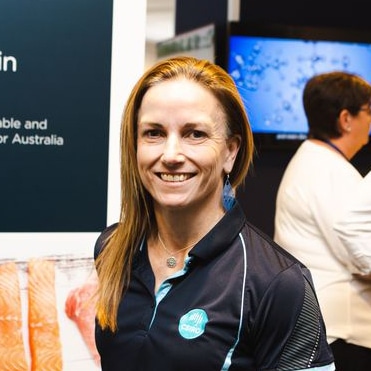
Prof Michelle Colgrave
Session: Legume end-uses
Professor Michelle Colgrave is the Deputy Director for Impact leading teams of scientists who are delivering outcomes to support a healthy future for the Australian agrifood sector, through the translation and commercialisation of sustainable food systems research. As former leader of CSIRO’s Future Protein Mission, Michelle seeks to promote open and informed discussion about what lays ahead for our agrifood systems.
She is also a Professor of Food and Agricultural Proteomics at Edith Cowan University, and chief investigator on the Australian Research Council Centre of Excellence for Innovations in Peptide and Protein Science. Her research interests include the application of proteomics, the study of proteins using mass spectrometry, to agriculture and food science to the benefit of human health.

Prof Dave Edwards
Session: Bioinformatics
Professor Edwards gained an Honours degree in Agricultural Science from the University of Nottingham and a PhD from the Department of Plant Sciences, University of Cambridge. He has held positions within academia, government and industry in the UK, Canada and Australia. In 2015 he moved to the University of Western Australia as Professor in Plant Genomics and in 2022 established the Centre for Applied Bioinformatics, supporting the continued growth of Bioinformatics across agricultural, environmental and biomedical disciplines.
He is one of Australia’s leading bioinformatics researchers, recognised as a Highly Cited researcher by Clarivate each year since 2019. His research interests include the structure and expression of plant genomes, the discovery and application of genome variation and the use of artificial intelligence to understand traits, with a focus on crop plants and accelerating crop improvement in the face of climate change.
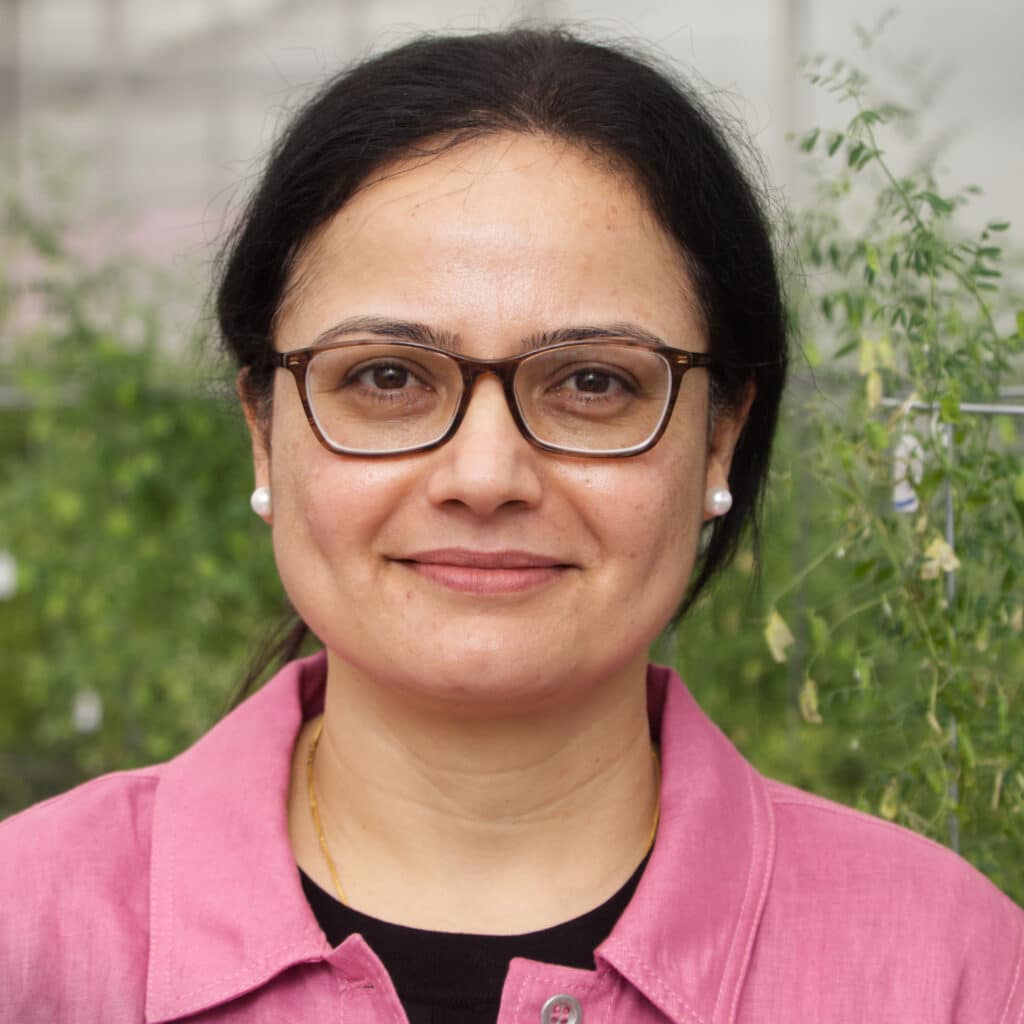
Dr Sukhjiwan Kaur
Session: Genomic and predictive breeding
Dr Kaur serves as the Research Leader in Applied Genomics and Predictive Breeding at Agriculture Victoria, based in Melbourne, Australia. With a solid academic background, including a Masters degree in Biochemistry and a PhD in Molecular Breeding and Genetics, she is widely recognized for her expertise in legume genetics, genomics, and computational breeding.
Over nearly two decades, Dr Kaur has made significant contributions to advancing legume research. She has notably pioneered the development of genomic resources for legume crops and led the development of cost-effective large-scale genotyping platforms, revolutionizing breeding programs on a considerable scale.
A standout accomplishment of Dr Kaur’s career has been her role in the transformation of Australian lentil and field pea breeding programs through the incorporation of genomics-assisted approaches, ushering in a new era of efficiency and productivity.
Dr Kaur’s research is primarily focused on the integration of genomics, quantitative genetics, and statistical modelling techniques to optimize crop production. Her work has not only advanced the understanding of plant genetics but has also facilitated the development of innovative strategies for improved crop yield and sustainability.

Prof Maria Carlote Vaz Patto
Session: Abiotic stress tolerance
Dr Vaz Patto is a Principal Investigator at the Instituto de Tecnologia Química e Biológica António Xavier (ITQB NOVA) in Oeiras, Portugal. Here, she heads the Plant Sciences Division and directs the PlantX Lab. Her research focus on understanding the genetic and genomic basis of complex plant traits, using various statistical genetic and genomic approaches. Currently, her team is studying resistance to environmental stresses like drought, flooding, diseases and pests on legumes, particularly grass pea and common bean. Additionally, they investigate nutritional, health-promoting and taste-related legume qualities.
Dr Vaz Patto has been actively involved in the Legume Community for more than two decades, concentrating on applying plant quantitative genetics to breeding, and engaging young researchers and end-users (such as farmers, processors and consumers) in exploiting the potential of underutilized legumes. She currently serves as Vice President of the International Legume Society.

Prof Tom Warkentin
Session: Plant defence
Dr Tom Warkentin is a Professor in the Crop Development Centre (CDC)/Department of Plant Sciences, University of Saskatchewan. Tom is breeding pea and soybean cultivars for western Canada, and together with graduate students, post-docs and technicians, he is conducting research to address the key challenges and opportunities associated with these crops.
Tom (h-index 63, google scholar) and colleagues have published on research related to improving disease resistance, abiotic stress resistance, protein concentration and quality, and nitrogen fixation in pea, as well as research related to adaptation of soybean to the short season, frontier regions of western Canada. Pea varieties arising from the CDC program have greater than 60% market share in western Canada. The CDC pea and soybean breeding programs use a combination of conventional and molecular breeding approaches.

Prof Jim Weller
Session: Plant development
Associate Professor Jim Weller completed his PhD at the University of Tasmania on the genetics of light-regulated development in pea. After post-doctoral work at RIKEN in Japan and Wageningen University in the Netherlands, he returned to Australia in 2002 to work on flowering time control in legumes. He also has longstanding interests in the comparative biology and genetics of domestication in this important crop group. He currently leads a national project on pulse phenology for the Grains Research and Development Corporation and is a CI in the ARC Centre of Excellence for Plant Success, which is exploring new approaches for the translation of fundamental genetic and physiological insights to crop breeding. He has been a keen participant in ICLGG since its inception in 2001.

Prof Ertao Wang
Session: Beneficial symbiosis
Professor Ertao Wang received his PhD degree in plant genetic at Chinese Academy of Sciences in 2008. Then, he began work on plant-microbe symbiosis as a postdoctoral fellow from 2008 to 2012 at John Innes Centre. He started his independent research career at the Center for Excellence in Molecular Plant Sciences, Shanghai Institute of Plant Physiology and Ecology, Chinese Academy of Sciences. He serves as an editor for academic journals such as The Plant Cell, New Phytologist, Science Bulletin, Journal of Integrative Plant Biology.
He explores interactions between plants and beneficial microorganisms, including bacteria and fungi. These microorganisms assist the host plants in nutrient uptake from the environment, with a particular focus on nitrogen and phosphorus. His research has established a theoretical framework of the nutritional exchange and regulation in arbuscular mycorrhizal symbiosis. He has identified the first plant mycorrhizal factor receptors, elucidating the molecular mechanisms by which plant development is modified to support these beneficial interactions. Now his group is trying to develop microbiome-combined strategies to increase plant nutrient using efficiency and control soil borne microbe diseases.
